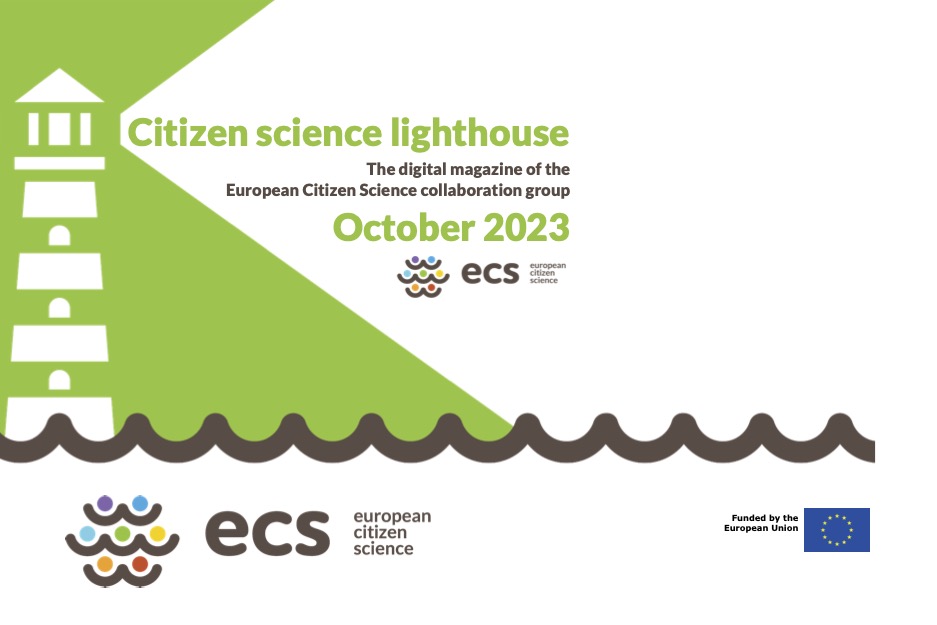
FOCUS: Citizen science and the law: potential applications
Anna Berti Suman
Oct. 2, 2023, 6 a.m.
Environment and the law
Civic environmental monitoring can offer valuable evidence for environmental law enforcement, both in judicial arenas and in alternative dispute resolution e.g., through mediation techniques. The legal potential and implications of civic environmental monitoring are the main focus of the project Sensing for Justice (funded by a MSCA Individual Fellowship and by the Dutch Research Council).
(@Andrea Marinelli Photographer)
The project indeed explores how civic environmental monitoring can offer valuable evidence for environmental law enforcement, both in judicial arenas and in alternative dispute resolution e.g., through mediation techniques. It also addresses an urgent need to understand emerging possibilities of the practice, starting from the actual demands and questions of people affected by environmental issues.
To bring ordinary people closer to the law and to courts, the Sensing for Justice project goes where the people are, through engaged ethnography; identifies which barriers need to be removed for civic evidence to be used for law enforcement, performing legal review and advocacy work in fora such as Meeting of the Parties to the Aarhus Convention, to support the right of every person to contribute environmental information. The project also uses art to translate complex legal concepts to ordinary people through images and examples, and generate empathy. Results are brought to public spaces such as squares, schools and libraries to stimulate further awareness.
These topics and more concrete legal questions were discussed during the workshop on Legal challenges in citizen science – held on August 1st, 2023, as part of the ECS Collaboration Group. (See also the article by Annelies Duerinckx, Legal challenges for citizen science initiatives: stories from the field)
Real-world scenarios
To explore and reflect together on the opportunity that the law offered or could offer to our initiatives, we engaged in an exercise of imagining two real-world scenarios. The proposed tasks were two, and the one the opposite of the other: on the one hand the task was to make laws in favour of citizen science, on the other hand the task was to make law to hamper it. The two groups received the below instructions:
In favour of citizen science
Making law(s) favouring citizen science came up with a number of points, the most remarkable being the need to set up legal advice spaces at national and local levels for citizens; in addition at the European level and national and local levels there should be (more) legal activity to give legitimacy to citizen science initiatives and offer them clear legal guidance in which to operate.
Against citizen science
Making law(s) against citizen science relates to the tensions between private property and the common good (supporting the need to perform citizen science) and freedom of information. Special categories of data – like health data – need specific cautions and require a mandatory Data Management Plan and an Ethical Impact Assessment. In case a private company is involved in an issue, to ensure information balance, the concerned company should have the right to respond to the civic data with their own data.
Science plays a crucial role and has a massive impact on our lives and well being. Scientific and technological aspects, ethical issues, social and economical factors are all intertwined to create a complex texture connected by delicate bonds. The law is a further dimension in it. Together, we can make it a tool to protect and foster the role citizens can have in taking decisions and shaping our present and our future.
CALL TO ACTION
Lastly, we discussed that there is not an ECSA working group on this topic. There is a WG focusing on how citizen science is influencing policy (and vice versa), whereas there is not one WG exploring how the law influences citizen science (and vice versa). We are exploring interest from the ECS community to join a new ECSA working group on Citizen Science & the Law. Interested? Flag it to Anna Berti Suman, anna.bertisuman@gmail.com and Annelies Duerinckx, annelies@scivil.be.
The ECSA Conference 2024 can also be a good occasion for an informal discussion around this matter.
Further readings
On the intersection between citizen science and the legal framework in Europe: Berti Suman, A., Balestrini, M., Haklay, M. and Schade, S., 2023. When Concerned People Produce Environmental Information: A Need to Re-Think Existing Legal Frameworks and Governance Models?. Citizen Science: Theory and Practice, 8(1), p.10. DOI: http://doi.org/10.5334/cstp.496
On the citizen science entering the judicial arena: Berti Suman, A. and Schade, S., 2021. The Formosa Case: A Step Forward on the Acceptance of Citizen-Collected Evidence in Environmental Litigation?. Citizen Science: Theory and Practice, 6(1), p.16. DOI: http://doi.org/10.5334/cstp.367
On the challenges posed by legal provisions to citizen science projects (for example, the GDPR): Berti Suman A. and Pierce R. (2018) “Challenges for Citizen Science and the EU Open Science Agenda under the GDPR”. European Data Protection Law Review, Volume 4, Issue 3. DOI: 10.21552/edpl/2018/3/7. https://edpl.lexxion.eu/data/article/13101/pdf/edpl_2018_03-008.pdf
On the legal risks that people engaged in citizen science may face: Berti Suman, A. (2022) “Striving for Good Environmental Information: Civic Sentinels of Oil Pollution in the South of the North”. Law, Environment and Development Journal, 17(2). DOI: 10.25501/SOAS.00037890. https://lead-journal.org/content/a1710.pdf